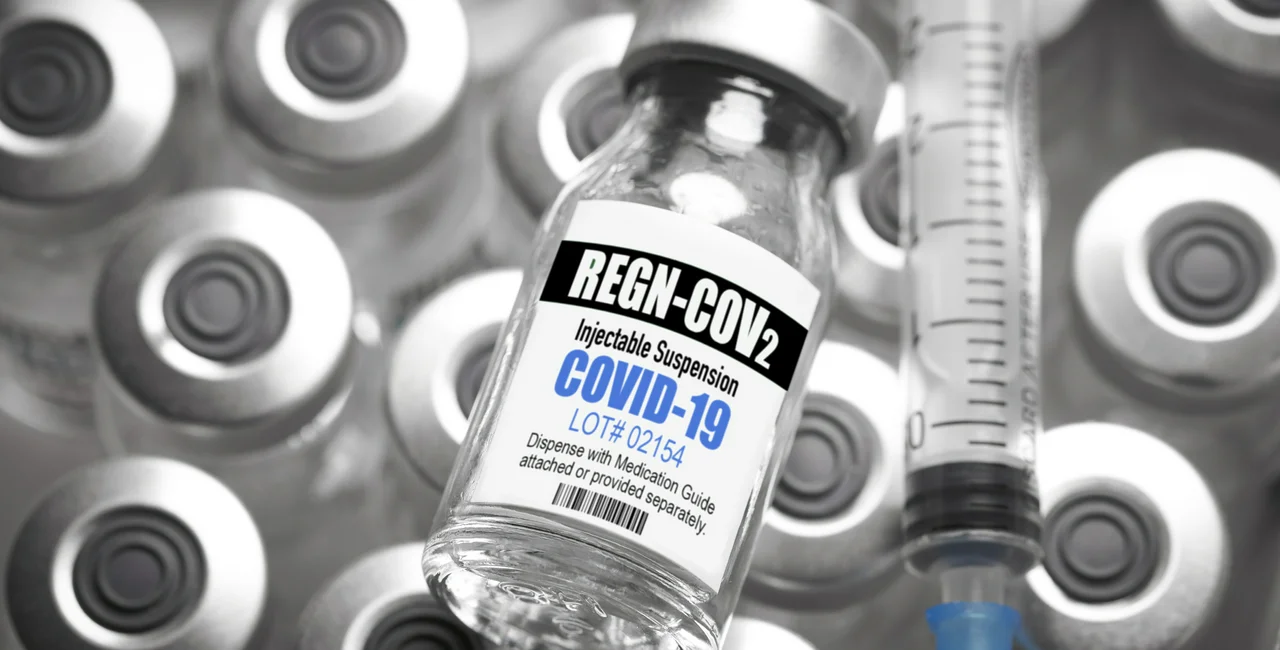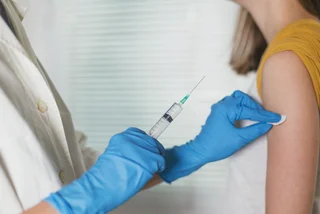Prague, Brno hospitals get first Covid drug from Regeneron
The teaching hospitals in Prague-Motol and Brno received the first supply of the anti-coronavirus medicine from Regeneron and 12,000 doses will arrive in March, April and May and will be distributed to other hospitals. The Brno Teaching Hospital will secure the drug distribution for Moravia. The medicine will be administered to the risk group of patients and it should prevent them from requiring hospitalization. One infusion of the medicine costs some CZK 60,000 and is covered by the public health insurance. The Health Ministry and the Czech State Drug Control Institute (SÚKL) granted an exception for it as the drug has not been registered in the EU yet. The drug must be administered within seven to 10 days after the infection.
Government council to discuss the plan to open schools
The Government Council for Health Risks will meet on Thursday morning to consider a plan for children to return to school after the epidemic subsides, government spokesman Vladimír Vořechovský said. According to the government's current plans, schools should start opening no earlier than April 12, subject to regular testing of students and strict hygiene rules. According to the Minister of Education Robert Plaga, the Education Ministry has everything ready for the return of pupils to schools. In February, 3.5 million respirators were sent to schools. It envisages testing twice a week with antigenic tests and has negotiated preferential vaccination of school staff. The date for return is to be determined by the Health Ministry.
Central Crisis Staff will assess to assess pandemic situation
The Central Crisis Staff (ÚKŠ) will assess the pandemic situation before the Easter holidays at its meeting today. Staff members are likely to address the current situation in hospitals and the progress of vaccination against Covid-19. Ministers want to maintain the measures announced since the beginning of March, including restrictions on movement between districts, at least until the end of Easter. Deputy Prime Minister Alena Schillerová identified the gradual return of children to school as a priority, according to her other measures can be changed according to the subsequent development of the epidemic and how it will affect the movement and meeting of people.
Senate to discuss financial implications of pandemic
The Senate will deal with the financial implications of the pandemic in healthcare today. It is expected to approve an increase in the amount of money that health insurance companies contribute to self-testing for coronavirus in companies. It will also decide on compensation to healthcare facilities for loss of income due to the coronavirus crisis.
EC president tweets in Czech about support loan
The Czech Republic received another loan of 1 billion euros from the European Commission under the SURE (Support to mitigate Unemployment Risks in an Emergency) program. The money is to help with the consequences of the coronavirus crisis. President of the European Commission Ursula von der Leyen, announced the funding on Twitter in Czech, stating that it was the second disbursement of money to the country, following one earlier in March. “SURE supports part-time work and protects jobs and livelihoods during a pandemic. Europe is with you,” she added. The program is intended to soften the economic impact of lockdowns related to the Covid pandemic.
🇨🇿 ÄŒesko dnes dostává dalÅ¡Ã miliardu eur z nástroje SURE. Prvnà miliardu dostalo již dÅ™Ãve tento mÄ›sÃc.
— Ursula von der Leyen (@vonderleyen) March 30, 2021
SURE podporuje zkrácenou pracovnà dobu a chránà pracovnà mÃsta a živobytà bÄ›hem pandemie.
Evropa je s vámi.
Some people suffer from heart problems after Covid
Some people suffer from cardiovascular problems after they underwent the Covid-19 disease, and doctors have registered cases of otherwise healthy people with myocardial infarction caused by blood clotting after the infection, Czech Society of Cardiology deputy chairman Miloš Táborský said. Its chairman Aleš Linhart points out that Covid patients might suffer from cardiovascular problems caused by oxygen deficiency in the heart in the case of a lung disorder. Cases of inflammation of the heart and complications caused by blood clotting were reported after Covid-19. Táborský said even young, slim non-smokers practicing sports suffered from acute myocardial infarction after having Covid-19. The administration of anticoagulant drugs can thus be suitable for some Covid patients.
More respirator production lines open in Prague
Five Taiwanese respirator production lines, which the Czech Republic received after a visit by Senate head Miloš Vystrčil to Taiwan in 2020, are now running in the country. Vystrčil yesterday visited The European Centre for Respirator Development and Production (ECVVR) production hall in Prague-Kunratice where two more lines were just put into operation, joining two lines the launched in early February. The fifth line is in Zlín, south Moravia, owned by the Technical and Testing Building Institute (TZÚS) and running since March 13.
"Thanks to our visit to Taiwan, we have in the Czech Republic five lines for respirator production that make 5 million respirators a month," Vystrčil said.
He said the ECVVR uses exclusively Czech components in the production and that a part of the respirators produced will be used for charitable purposes. Prague Mayor Zdeněk Hřib, who was among the members of the delegation last year, said in Kunratice that Prague City Hall already bought respirators from the Taiwanese lines.
Lowest Tuesday increase of new cases since early February
There were 8,568 confirmed new cases of coronavirus in the Czech Republic on Tuesday, some 2,400 fewer than last Tuesday. For the first time since the beginning of February, Tuesday's increase was below 10,000, according to data from the Health Ministry. There were 85 Covid-related deaths reported on Tuesday, making the total 26,421. This data usually increases with further updates. The last time there were fewer than 100 Covid-related deaths in one day was Dec. 20. The PES index is at 59 for the fourth day in a row. The reproduction number R remained 0.85.
Latest Covid-19 data from the Czech Ministry of Health (March 31, 2021)
- New cases 8,568
- Deaths 26,222
- Currently hospitalized 7,580
- PCR tests performed 6,236,023
- Antigen tests performed 6,248,256
- PES index: 59
- R number: 0.85












 Reading time: 4 minutes
Reading time: 4 minutes 



 English
English
 French
French
 Hungarian
Hungarian
 Spanish
Spanish
 Norwegian
Norwegian



























